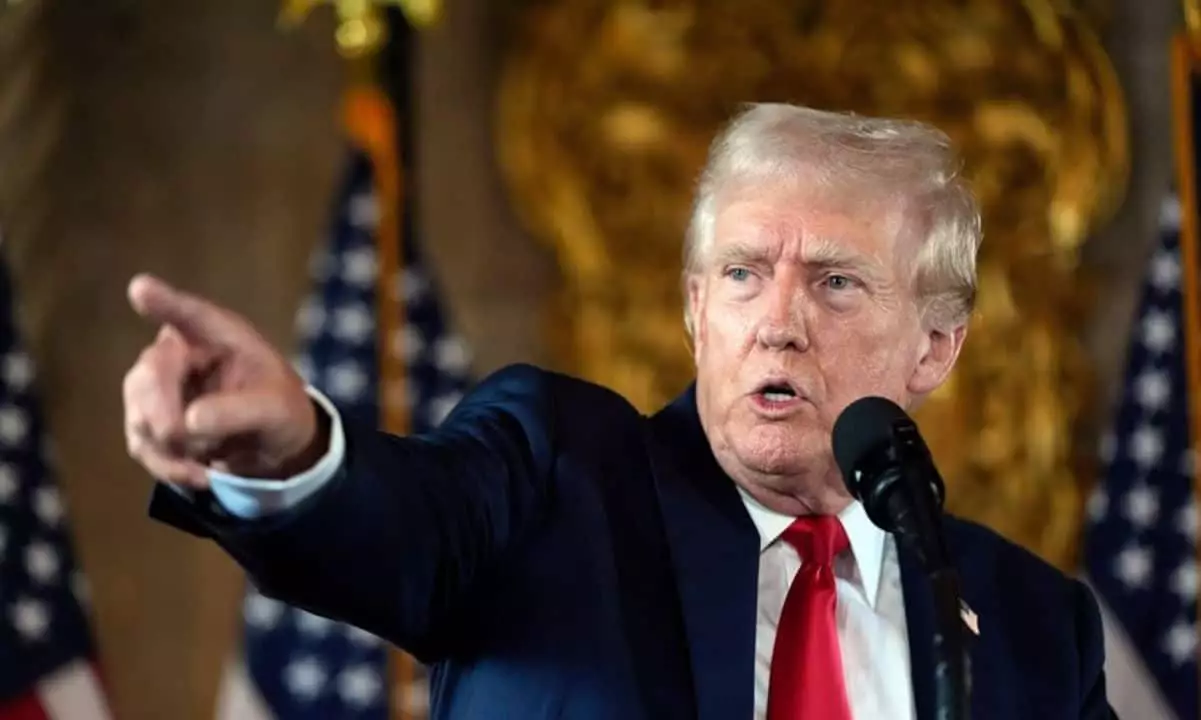In an era where politics and technology intertwine more than ever, recent financial contributions from prominent venture capitalists Marc Andreessen and Ben Horowitz to a pro-Trump super PAC, Right For America, highlight the complex relationship between the crypto industry and political endorsements. Each investor has contributed $2.5 million to the PAC, largely motivated by a belief that the policies of Donald Trump will favor the startup ecosystem and cryptocurrency regulation—an alignment they term the “little tech agenda.” This term symbolizes their hope for more expansive and favorable regulatory frameworks that will benefit emerging technologies.
Andreessen’s financial involvement doesn’t stop at just the PAC; he also maxed out his contributions to Trump’s campaign and the Republican Party with an additional $844,600, showcasing a multi-faceted strategy to influence political outcomes. Horowitz’s recent decision to announce a potential contribution to Vice President Kamala Harris’ campaign adds another layer of intrigue. Despite Harris’s ambiguity regarding crypto policy, it seems Horowitz is attempting to hedge his bets, straddling the line between support for Democrats and Republicans in an unpredictable electoral landscape.
In an unusual twist, Chris Larsen, co-founder of Ripple, has injected $1 million worth of XRP tokens into Future Forward, a PAC backing Harris’s campaign, despite the tumultuous relationship his firm has had with the government through the Securities and Exchange Commission (SEC), which has been embroiled in litigation against Ripple since 2020. This connection demonstrates the complicated dynamics entrepreneurs face when negotiating their interests against a backdrop of stringent regulatory pressures, illustrating the lengths stakeholders are willing to go to influence political outcomes in their favor.
Notably, the PACs supporting Trump, including Right For America, have amassed impressive war chests, with $27.8 million raised and $43.6 million in cash reserves as the campaign intensifies. A significant portion of their resources is allocated for critical battleground states, such as Arizona, Georgia, and Pennsylvania. Comments from Horowitz joking about anticipated backlash from friends underscore the increasingly polarized nature of political affiliations within the tech community.
The growing influence of crypto-centric super PACs illustrates a vital trend: the digital asset sector is mobilizing to shape political narratives and regulatory stances. With Republican candidates currently outpacing their Democratic counterparts in super PAC fundraising, it signals a strategic shift where the cryptocurrency industry is aligning itself pragmatically with political figures. Advocating for candidates who endorse more lenient regulatory frameworks can significantly alter the future landscape of cryptocurrency in the United States.
The intersection of venture capitalism and political finance demonstrates a multifaceted and often contradictory approach among tech magnates. As alliances are formed and policies are debated, the actions of industry leaders underscore how entrepreneurship may increasingly depend on astute political maneuvering in addition to technological innovation. The future trajectory of cryptocurrencies and their regulatory environment will undoubtedly be influenced by these financial contributions and the networks of power they help sustain.














Leave a Reply